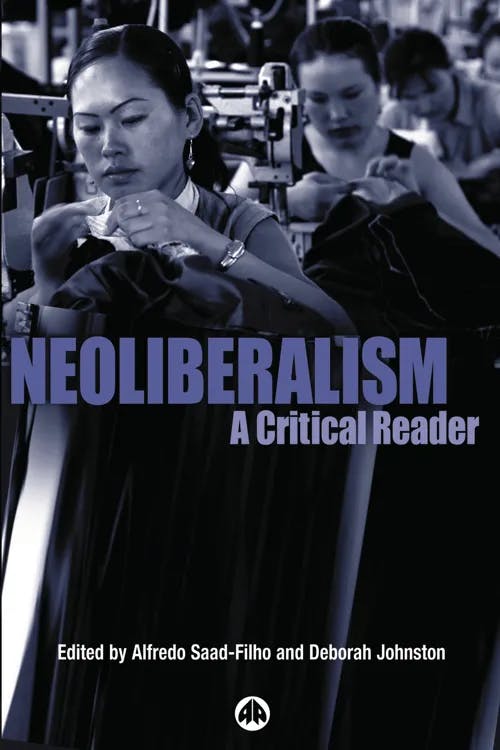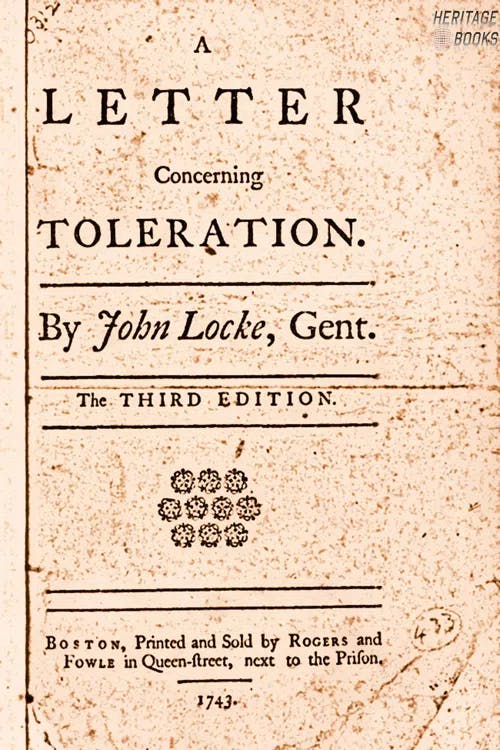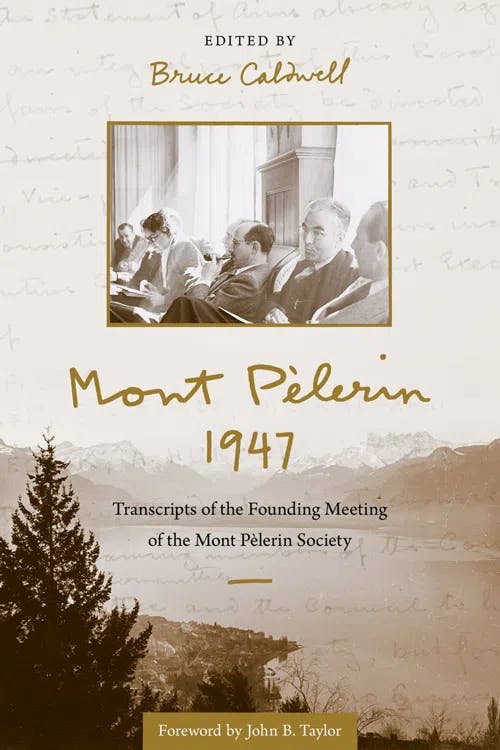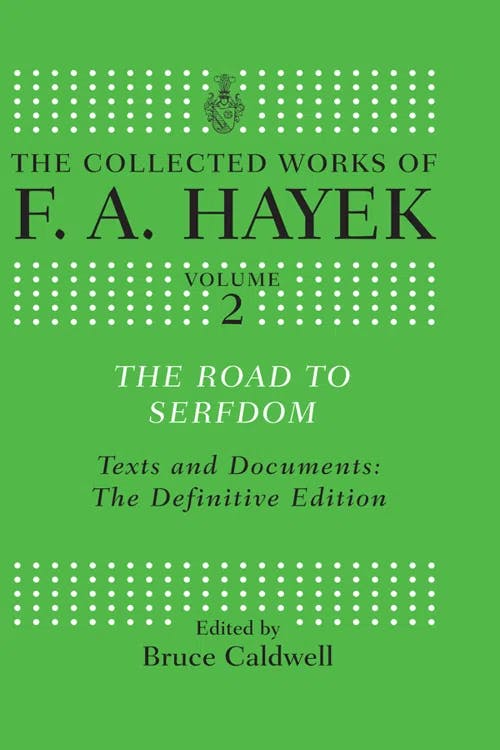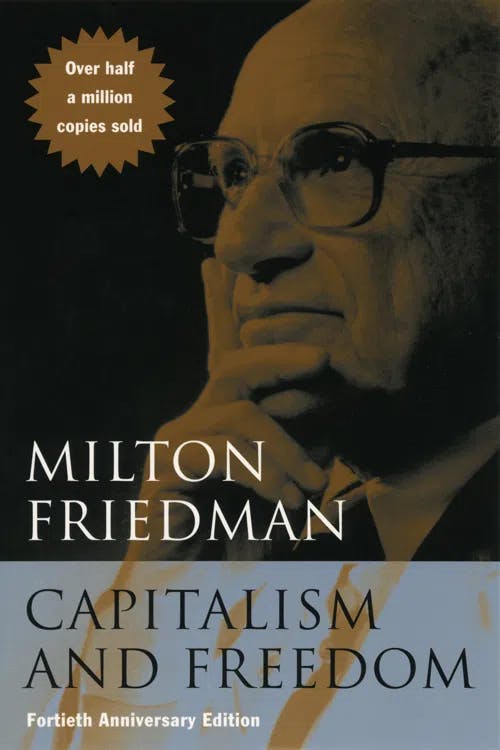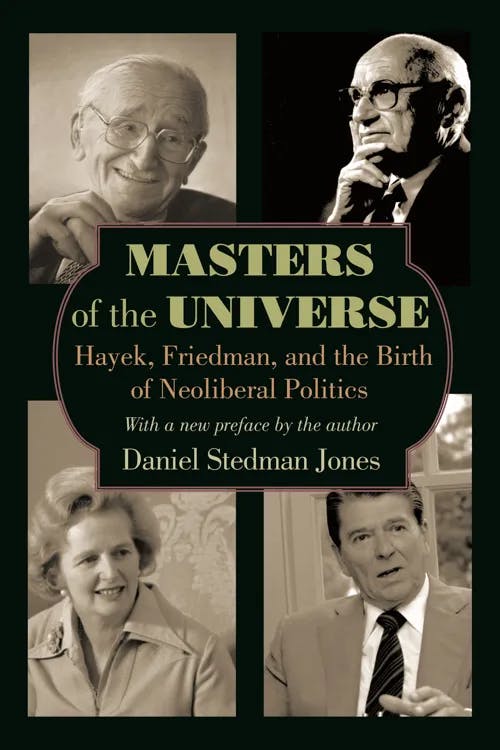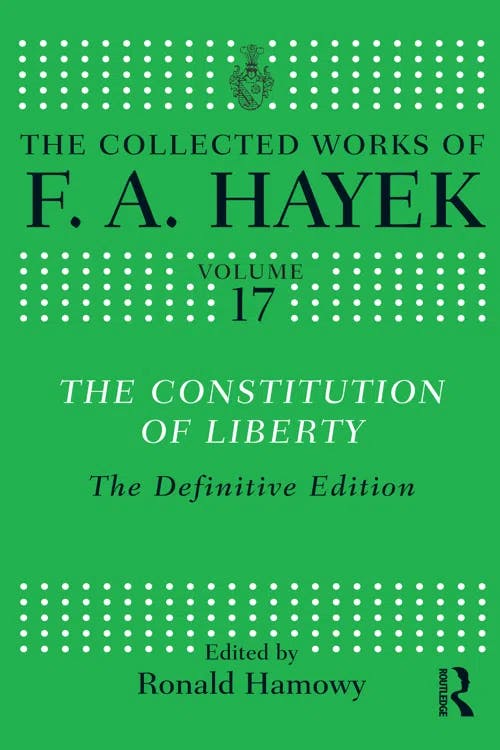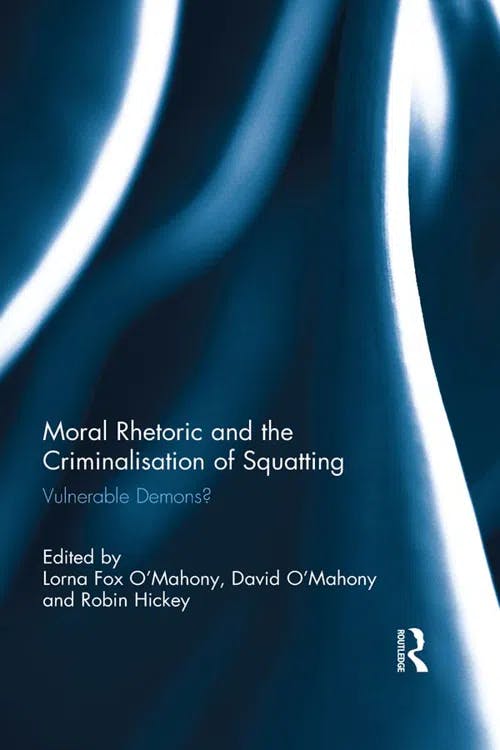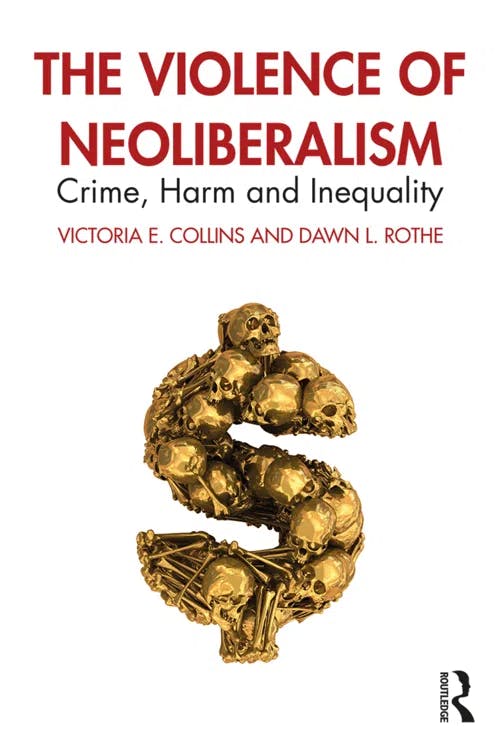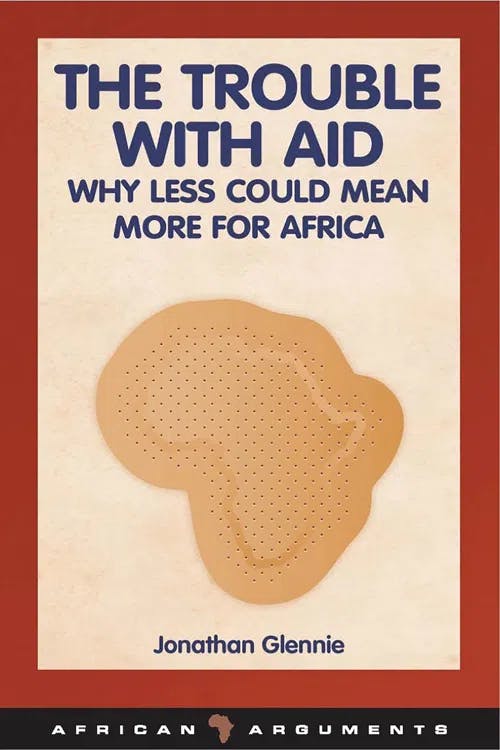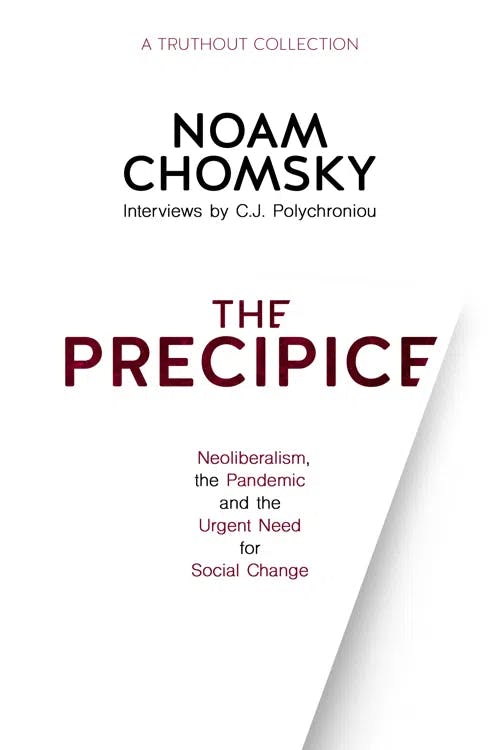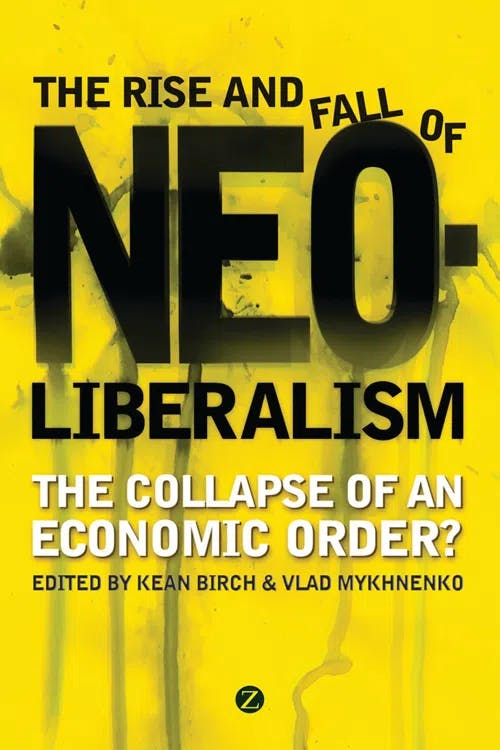What is Neoliberalism?
PhD, English Literature (Lancaster University)
Date Published: 19.04.2023,
Last Updated: 05.08.2024
Share this article
Defining neoliberalism
Neoliberalism is a political ideology focused on free-market capitalism, with an emphasis on an individual’s economic rights. Neoliberalist policy promotes individualism and self-sufficiency, believing the state should not interfere in private economic matters. In “The Welfare State and Neoliberalism”, Susanne MacGregor writes that,
Neoliberal social policy emphasises the market; the doctrine that ‘private’ is superior to ‘public’ (seeing this as the way to enhanced quality and efficiency); and the ideas and values of individualism and freedom of choice. Social protectionist laws are viewed as indirect barriers to trade. The welfare state is thought to hamper economic growth, to encourage unemployment by undermining work incentives and setting poverty traps, and to be an unaffordable burden on the economy and a hindrance to international competitiveness [...]. (2004)
Edited by Alfredo Saad-Filho and Deborah Johnston
Neoliberal social policy emphasises the market; the doctrine that ‘private’ is superior to ‘public’ (seeing this as the way to enhanced quality and efficiency); and the ideas and values of individualism and freedom of choice. Social protectionist laws are viewed as indirect barriers to trade. The welfare state is thought to hamper economic growth, to encourage unemployment by undermining work incentives and setting poverty traps, and to be an unaffordable burden on the economy and a hindrance to international competitiveness [...]. (2004)
Neoliberalism’s encouragement of competitive business practices, self-sufficiency, and individual freedom has been widely criticized for perpetuating wealth inequality. Neoliberal ideals have been primarily associated with the Ronald Reagan administration and the Thatcher government in the 1980s. However, the values of neoliberalism have a long history in Central European political and philosophical thought.
Classical liberalism
Neoliberalism arose from classical liberalism, a political tradition in the nineteenth century which emphasized the core values of democracy and freedom. There are four broad tenets of liberalism, as outlined by Edmund Fawcett in Liberalism (2018). They are as follows:
- Acknowledgement that conflict is inescapable and that economic change, war, and fragmentation were bound to disrupt societies.
- A belief that “power grew implacable if not checked” led to a distrust of the “power of the state, of wealth or of the social community”.
- Faith in human progress emerged from the desire to improve as well as out of the values of the Enlightenment.
- Civic respect (law backed by the state and society) “had its roots in the religious acknowledgement of people’s intrinsic worth and insistence on their moral responsibility for themselves”.
These tenets are derived from the much earlier work of such thinkers as John Locke, known as the Father of Classical Liberalism, particularly Second Treatise of Government (1689, [2018]), and A Letter Concerning Toleration (1689, [2019]). Locke’s Second Treatise explains how all humans possess “natural rights”, i.e. rights that they are born with. Locke further argues that most people are capable of governing themselves. This ability to self-govern, Locke proposes, is due to a combination of personal morality and the fact that all within a society enter into a social contract, agreeing to not harm one another as a way to avoid conflict. For this reason, Locke sees the interference of the state as being unnecessary in many matters. In A Letter Concerning Toleration, Locke further explains how the state should not involve itself in spiritual matters. Locke muses on what should happen if a person becomes ill or neglectful of his property. He questions,
Will the magistrate provide by an express law that such a one shall not become poor or sick? Laws provide, as much as is possible, that the goods and health of subjects be not injured by the fraud and violence of others; they do not guard them from the negligence or ill-husbandry of the possessors themselves. No man can be forced to be rich or healthful whether he will or no. (1689 [2019])
John Locke
Will the magistrate provide by an express law that such a one shall not become poor or sick? Laws provide, as much as is possible, that the goods and health of subjects be not injured by the fraud and violence of others; they do not guard them from the negligence or ill-husbandry of the possessors themselves. No man can be forced to be rich or healthful whether he will or no. (1689 [2019])
Locke argues here that the law should exist to protect its citizens from each other, not themselves. The state, therefore, should not be able to dictate how we behave in relation to our own health, property, and personal affairs. Liberal thinkers believe this stands in the way of free will. Today, we can see this continues to be relevant as governments will often instate health initiatives, such as the UK’s 2018 “sugar tax” on soft drinks, to promote the physical well-being of citizens. Policies such as these are often challenged by neoliberals.
The beginnings of neoliberalism
In 1947, we can see the beginnings of neoliberalism in the creation of the Mont Pelerin Society (MPS), an organization composed of economists, business leaders, philosophers, and other intellectuals. Its founders included Friedrich Hayek, Karl Popper, Ludwig von Mises, and Milton Friedman.
The society was created as a result of Hayek’s concern about the political, social, and economic future of Europe after WW2. As Bruce Caldwell explains,
The Great Depression had undermined people’s faith in markets, and on the continent totalitarian systems of various unpalatable sorts were vying for power. For many in England, socialist planning seemed to provide a promising middle path between a discredited free-enterprise system and its communist and fascist alternatives. (2022)
Bruce Caldwell
The Great Depression had undermined people’s faith in markets, and on the continent totalitarian systems of various unpalatable sorts were vying for power. For many in England, socialist planning seemed to provide a promising middle path between a discredited free-enterprise system and its communist and fascist alternatives. (2022)
Caldwell further highlights that the society initially disputed the term “neoliberalism”, with some claiming that “constructive liberalism” or “neocapitalism” best articulated their stance. The term was revived later in the century.
While neoliberalism (as we know it now) had not fully formed by this point, it is clear that the MPS played a significant role in popularizing these ideas. Hayek’s The Road to Serfdom (1944, [2014]) and Milton Friedman’s Capitalism and Freedom (1962, [2009]), for example, are two of the core texts which espoused this new form of liberalism.
Hayek argues that fascism and communism are two sides of the same coin, and that their end goals of social welfare, social justice, and equality are often achieved by authoritarian methods. Hayek’s perspective of democracy is similar to that of classical liberalism. He writes,
By giving the government unlimited powers, the most arbitrary rule can be made legal; and in this way a democracy may set up the most complete despotism imaginable. (1944, [2014])
F.A. Hayek
By giving the government unlimited powers, the most arbitrary rule can be made legal; and in this way a democracy may set up the most complete despotism imaginable. (1944, [2014])
Similarly, in Capitalism and Freedom, Friedman acknowledges that government is “necessary to preserve our freedom”, but that it poses a threat to freedom if those in power are prone to corruption. To protect against corruption, Friedman argues that the government must be limited, with its functions being to:
- Protect citizens’ freedom from “enemies outside our gates and from our fellow citizens”
- Preserve law and order
- Enforce private contracts
- Foster competitive markets.
(Friedman, 1962, [2009])
Friedman also argues that the government should be dispersed. He explains that:
If I do not like what my local community does, be it in sewage disposal, or zoning, or schools, I can move to another local community, and though few may take this step, the mere possibility acts as a check. If I do not like what my state does, I can move to another. If I do not like what Washington imposes, I have few alternatives in this world of jealous nations. (1962, [2009])
Milton Friedman
If I do not like what my local community does, be it in sewage disposal, or zoning, or schools, I can move to another local community, and though few may take this step, the mere possibility acts as a check. If I do not like what my state does, I can move to another. If I do not like what Washington imposes, I have few alternatives in this world of jealous nations. (1962, [2009])
With each state dictating its own policies, the US citizen is able to choose to live in the state that is most aligned with their lifestyle and belief system. In The Value Mindset (2011), Erik Stern and Mike Hutchinson argue that one of the positive outcomes of this self-determination is that it creates communities whereby citizens have similar goals and outlooks.
Neoliberalist thought became more prominent in the 1970s as a reaction to public debt and economic crises. Many neoliberal thinkers saw these problems as having been caused by socialist liberalism, which began to be embedded into policy post-WW2. Socialist liberalism focused on removing obstacles that could impinge upon individual freedom, such as poverty or social injustice. This was the basis of the welfare state and other initiatives. Social liberals wanted full employment and higher spending during recessions. Neoliberals saw the emergence of the welfare state and other social policies as an infringement of personal liberty and expressed concern about the involvement of the state in its citizens’ lives. Gradually, neoliberal thought began to become policy in the Western world. However, these policies have been heavily criticized for their impact on wealth inequality across the globe.
Wealth and inequality
One of the main criticisms of neoliberal ideas and policies is that they have been proven to increase social inequality (Ostry, Loungani, and Furceri, “Neoliberalism: Oversold?”, 2016). Daniel Stedman Jones highlights that, while earlier works from liberals such as Hayek, Karl Popper, Walter Lippman, and Henry Simons recognized the need for some welfare safety nets,
after the formation of Hayek’s Mont Pelerin Society in 1947, neoliberal scholars began to depart from such accommodations, which were a legacy of the 1930s and the 1940s, and a position less troubled by doubts about the virtues of markets emerged. (2014)
Daniel Stedman Jones
after the formation of Hayek’s Mont Pelerin Society in 1947, neoliberal scholars began to depart from such accommodations, which were a legacy of the 1930s and the 1940s, and a position less troubled by doubts about the virtues of markets emerged. (2014)
A clear demonstration of the impact of neoliberalist thought on those in lower socioeconomic groups is in housing policies.
In The Constitution of Liberty (1960 [2020]), Hayek writes that,
[The] limitation of public housing to the poorest families will generally be practicable only if the government does not attempt to supply dwellings which are both cheaper and substantially better than they had before; otherwise the people thus assisted would be better housed than those immediately above them on the economic ladder; and pressure from the latter to be included in the scheme would become irresistible, a process which would repeat itself and progressively bring in more and more people.
F.A. Hayek
[The] limitation of public housing to the poorest families will generally be practicable only if the government does not attempt to supply dwellings which are both cheaper and substantially better than they had before; otherwise the people thus assisted would be better housed than those immediately above them on the economic ladder; and pressure from the latter to be included in the scheme would become irresistible, a process which would repeat itself and progressively bring in more and more people.
In Capitalism and Freedom, Friedman advocates cash substitutes as an alternative to public housing. Arguing that poor families would prefer to be given cash in kind to spend on housing if they wished, Friedman explains that:
Public housing cannot therefore be justified on the grounds either of neighbourhood effects or of helping poor families. It can be justified, if at all, only on grounds of paternalism; that the families being helped “need” housing more than they “need” other things but would themselves either not agree or would spend the money unwisely. (1962, [2009])
Offering public housing is seen as an affront to neoliberal ideology, which posits that the government should not interfere in its citizens’ financial and personal affairs. This ideology underpins Friedman’s suggestion of a cash substitute, as it would allow citizens to determine how they spend their own money.
Friedman’s ideas would later be solidified into US legislation through the Section 8 program in 1974 (amending the Housing Act of 1937), which encouraged tenants to accept vouchers they could put towards their rent. However, there have been issues with recipients of these vouchers struggling to find moderately priced housing, or with some landlords not accepting these vouchers.
In addition to housing, neoliberalism is criticized in relation to its impact on a newly emerging socioeconomic group: the precariat. As Neil Cobb writes,
It has been argued in particular that neoliberalism is responsible for the emergence of a new ‘precariat’, defined by acute socio-economic insecurity and, importantly, an endemic experience of anger, anomie, anxiety and alienation that marks it out as a new class that is potentially ‘dangerous’ in terms of its potential for radical change. (“The political economy of trespass: revisiting Marxist analysis of the law's response to squatting” in Moral Rhetoric and the Criminalisation of Squatting, 2014)
Edited by Lorna Fox O'Mahony, David O'Mahony, and Robin Hickey
It has been argued in particular that neoliberalism is responsible for the emergence of a new ‘precariat’, defined by acute socio-economic insecurity and, importantly, an endemic experience of anger, anomie, anxiety and alienation that marks it out as a new class that is potentially ‘dangerous’ in terms of its potential for radical change. (“The political economy of trespass: revisiting Marxist analysis of the law's response to squatting” in Moral Rhetoric and the Criminalisation of Squatting, 2014)
As Cobb highlights here, the self-sufficiency encouraged by neoliberalism has not been beneficial for all socioeconomic groups. It is also worth noting that precarious work unevenly disadvantages women and minority groups (see “What is Marxist Feminism?”).
In recent decades, in both the UK and the US, there has been an increase in inequality and poverty. In The Violence of Neoliberalism (2019), Victoria E. Collins and Dawn L. Rothe argue that neoliberal policies have continued to amplify the economic divide. This is exemplified by the fact that the wealthiest 1% of households in the US own 40% of the country's total wealth (Ingraham, “The richest 1 percent now owns more of the country’s wealth than at any time in the past 50 years”, 2017). Collins and Rothe highlight the egregiousness of this in light of the millions living in poverty and argue that,
Partly as a result of economic inequality along with the policies of neoliberalism, are extreme poverty, homelessness, immigration and the plight of refugees, both in the United States and across the globe.
Victoria E. Collins and Dawn L. Rothe
Partly as a result of economic inequality along with the policies of neoliberalism, are extreme poverty, homelessness, immigration and the plight of refugees, both in the United States and across the globe.
The work of Collins, Rothe and others continues to draw attention to the economic ramifications felt by the poorest countries and individuals across the world as a result of neoliberalism.
The Washington Consensus and globalization
Research on neoliberalism has often focused on its impact on international trade and global inequality. Collins and Rothe write,
From sweatshops, to environmental pollution, to chronic health issues from pesticide exposure, to resource wars, there are numerous examples of the serious inequalities, violence and harm that are couched in the unequal practices of a neoliberal global market. (The Violence of Neoliberalism, 2019)
The consequences of the neoliberal model on the developing world have been manifold. These economic policies, with their focus on deregulation and business competitiveness, often fail to take into account the long-term impact they have on the countries they are imposed upon.
Neoliberal ideology became global policy through the Washington Consensus. The Washington Consensus (a term coined by economist John Williamson in 1989) is often referred to as the “neoliberal manifesto”. The term was used to describe the economic model which occurred in the 1980s as a result of economic globalization and the debt crisis in the developing world. These neoliberal policies (supported by institutions such as the World Bank, International Monetary Fund, and World Trade Organization) were put into place in developing countries, primarily in Latin America.
In The Trouble with Aid (2009), Jonathan Glennie outlines the ten policies of the Washington Consensus:
- Tightening government spending across the board
- Redirecting public expenditure to support growth and pro-poor services
- Tax reform (lower marginal rates and a broader tax base)
- Market-determined interest rates
- Competitive exchange rates to induce growth in exports
- Reducing barriers to trade
- Reducing government controls over foreign investment
- Privatizing state-owned companies
- Reducing regulations which restrict competition
- Legally enforcing property rights
Glennie further explains how,
In many instances, countries were urged to protect property rights, redirect public spending to social services and follow basic laws of fiscal discipline. But in practice even these tenets were applied so rigorously and without regard for political context that they often generated negative outcomes. (2009)
Jonathan Glennie
In many instances, countries were urged to protect property rights, redirect public spending to social services and follow basic laws of fiscal discipline. But in practice even these tenets were applied so rigorously and without regard for political context that they often generated negative outcomes. (2009)
For example, as Glennie explains, in 1984,
the Kenyan government, under instruction from the IMF, reduced restrictions on imported clothing and deregulated the cotton market, cheap clothing from Asia and Europe flooded into the country, benefiting some consumers in the short term but devastating one of Kenya’s most established industries. (2010)
As we can see here, the short-term thinking of neoliberal ideology did not take into account future supply and demand, or sustainability. Another key takeaway from this example is the involvement of the IMF, a transnational corporation (TNC); TNCs are often closely associated with neoliberal ideology. (For more information on TNCs, see our study guide “What is Neocolonialism?”.) As Noam Chomsky writes in The Precipice (2021), the changes in globalization since the 1970s have primarily been caused by TNCs. Chomsky uses the example of Apple to demonstrate how TNCs benefit from neoliberal ideas. He states that,
A standard illustration is Apple, the world’s biggest company. Its iPhone is designed in the US. Parts from many suppliers in the US and East Asia are assembled mostly in China in factories owned by the huge Taiwanese firm Foxconn. Apple’s profit is estimated to be about ten times that of Foxconn, while value added and profit in China, where workers toil under miserable conditions, is slight. Apple then sets up an office in Ireland so as to evade US taxes—and has recently been fined $14 billion by the EU in back taxes.
Noam Chomsky and C. J. Polychroniou
A standard illustration is Apple, the world’s biggest company. Its iPhone is designed in the US. Parts from many suppliers in the US and East Asia are assembled mostly in China in factories owned by the huge Taiwanese firm Foxconn. Apple’s profit is estimated to be about ten times that of Foxconn, while value added and profit in China, where workers toil under miserable conditions, is slight. Apple then sets up an office in Ireland so as to evade US taxes—and has recently been fined $14 billion by the EU in back taxes.
This type of practice by TNCs has been enabled through neoliberalism: companies are able to expand and grow their wealth, (largely) unhampered by government taxation. We can see this type of thought in Reagan’s lifting of the ban on tax havens, in which the burden of taxation fell to the public.
The end of neoliberalism?
Chomsky identifies how, in the past two decades, we have seen the real impact of neoliberalism. In particular, Chomsky looks at how Trump’s presidency and the COVID-19 pandemic have revealed the hardships caused by neoliberal doctrine. For example, Chomsky writes of how neoliberal policy and ideology resulted in the US government not interfering when issues arose regarding ventilator shortages during the COVID-19 pandemic. As well as this, Chomsky draws attention to how the US’s privatized healthcare system has “long been an international scandal, with twice the per capita expenses of other developed societies and some of the worst outcomes” (The Precipice, 2021).
With the end of the Trump administration, the pandemic, and economic recession, many have questioned whether neoliberalism has come to an end, and if so what will replace it?
Vlad Mykhnenko and Kean Birch argue that,
neoliberalism has self-destructed. The thirty-year long global march of the free-market ideology has come to an abrupt end with the shrinkage of money-credit that began in August 2007. The global financial and economic crises have painfully revealed that the long boom in the heartland of global financial capitalism was propelled by consumerled indebtedness. We can now see that global financial capitalism was the ultimate neoliberal innovation enabled by the preceding waves of economic deregulation and liberalization. (2013)
Edited by Kean Birch and Vlad Mykhnenko
neoliberalism has self-destructed. The thirty-year long global march of the free-market ideology has come to an abrupt end with the shrinkage of money-credit that began in August 2007. The global financial and economic crises have painfully revealed that the long boom in the heartland of global financial capitalism was propelled by consumerled indebtedness. We can now see that global financial capitalism was the ultimate neoliberal innovation enabled by the preceding waves of economic deregulation and liberalization. (2013)
However, John Cormaroff questions what we mean by the “end” of neoliberalism and suggests that,
the world economic crisis of 2008–2009 might have killed off neoliberalism as a global ideological project—patently, in the noun form—it is highly likely to leave the capillaries of the beast, less Leviathan than Great White Shark, largely intact. (“The End of Neoliberalism? What is Left of the Left”, 2011)
Cormaroff adds there may be “some minor reregulation of the finance industry, especially in favor of long-term wealth-generation”, tax readjustment, or “marginally greater citizen protection against the cons of the corporate world”. David Harvey in “Is this Really the End of Neoliberalism?” (2009), argues that the project of neoliberalism is a class project which has been largely successful. Harvey proposes some alternatives to a neoliberal system and argues,
We’ve got to socialize and recapitalise public education and health care long with housing provision. These sectors of the economy have to be socialized along with the banks. (2009)
Recently, we have seen the rise of post-neoliberalism (also known as anti-neoliberalism) which seeks to change the role of the state. Post-neoliberal groups are dispersed across the world, concentrated mainly in Latin America. These groups advocate for the expansion of social benefits, reduction in poverty, and state intervention in the economy when needed.
Further reading on Perlego
Brown, W. (2019) In the Ruins of Neoliberalism: The Rise of Antidemocratic Politics in the West. Columbia University Press. Available at: https://www.perlego.com/book/862422/in-the-ruins-of-neoliberalism-the-rise-of-antidemocratic-politics-in-the-west-pdf
Cahill, D., and M. Konings. (2017) Neoliberalism. Polity. Available at: https://www.perlego.com/book/1536043/neoliberalism-pdf
Eagleton-Pierce, M. (2016) Neoliberalism: The Key Concepts. Routledge. Available at: https://www.perlego.com/book/1615820/neoliberalism-the-key-concepts-pdf
Neoliberalism FAQs
What is neoliberalism in simple terms?
What is neoliberalism in simple terms?
How does neoliberalism relate to classical liberalism?
How does neoliberalism relate to classical liberalism?
Who are some key neoliberal figures?
Who are some key neoliberal figures?
What is the Washington Consensus in simple terms?
What is the Washington Consensus in simple terms?
Bibliography
Birch, K., and V. Mykhnenko (eds.) (2013) The Rise and Fall of Neoliberalism. Zed Books. Available at: https://www.perlego.com/book/2011981/the-rise-and-fall-of-neoliberalism-the-collapse-of-an-economic-order-pdf
Caldwell, B. (2022) Mont Pèlerin 1947: Transcripts of the Founding Meeting of the Mont Pèlerin Society. Hoover Institution Press. Available at: https://www.perlego.com/book/2987129/mont-plerin-1947-transcripts-of-the-founding-meeting-of-the-mont-plerin-society-pdf
Chomsky, N. (2021) The Precipice: Neoliberalism, the Pandemic, and the Urgent Need for Radical Change. Haymarket Books. Available at: https://www.perlego.com/book/1989952/the-precipice-neoliberalism-the-pandemic-and-the-urgent-need-for-radical-change-neoliberalism-the-pandemic-and-urgent-need-for-radical-change-pdf
Cobb, N. (2014) “The political economy of trespass: revisiting Marxist analysis of the law's response to squatting” in Moral Rhetoric and the Criminalisation of Squatting: Vulnerable Demons? eds. L. Fox O’Mahony, D. O’Mahony, and R. Hickey. Routledge. Available at: https://www.perlego.com/book/1666169/moral-rhetoric-and-the-criminalisation-of-squatting-vulnerable-demons-pdf
Collins, V. E. and D. L. Rothe (2019) The Violence of Neoliberalism. Routledge. Available at: https://www.perlego.com/book/1596065/the-violence-of-neoliberalism-crime-harm-and-inequality-pdf
Cormaroff, J. (2011) “The End of Neoliberalism? What is Left of the Left”. The ANNALS of the American Academy of Political and Social Science. 637.1. Available at: https://journals.sagepub.com/doi/abs/10.1177/0002716211406846?journalCode=anna
Fawcett, E. (2018) Liberalism: The Life of an Idea. 2nd edn. Princeton University Press. Available at: https://www.perlego.com/book/740153/liberalism-the-life-of-an-idea-second-edition-pdf
Friedman, M. (1962, [2009]) Capitalism and Freedom. 40th edn. University of Chicago Press. Available at: https://www.perlego.com/book/1853344/capitalism-and-freedom-fortieth-anniversary-edition-pdf
Glennie, J. (2009) The Trouble with Aid: Why Less Could Mean More for Africa. Zed Books. Available at: https://www.perlego.com/book/2706938/the-trouble-with-aid-why-less-could-mean-more-for-africa-pdf
Harvey, D. (2009). “Is this really the end of neoliberalism?” Counter Punch, 13. Available at: https://www.counterpunch.org/2009/03/13/is-this-really-the-end-of-neoliberalism/
Hayek, F. A. (1944, [2014]) The Road to Serfdom. Vol 2. Routledge. Available at: https://www.perlego.com/book/570781/the-road-to-serfdom-pdf
Hayek, F. A. (1960 [2020]) The Constitution of Liberty. Vol 17. Routledge. Available at: https://www.perlego.com/book/1698536/the-constitution-of-liberty-the-definitive-edition-pdf
Ingraham, C. (2017). “The richest 1 percent now owns more of the country’s wealth than at any time in the past 50 years”. The Washington Post. Available at: www.washingtonpost.com/news/wonk/wp/2017/12/06/the-richest-1-percent-now-owns-more-of-the-countrys-wealth-than-at-any-time-in-the-past-50-years/?utm_term=.ee9711063c8c
Locke, J. (1689, [2019]) A Letter Concerning Toleration. 3rd edn. Heritage Books. Available at: https://www.perlego.com/book/2912635/a-letter-concerning-toleration-pdf
Locke, J. (1689, [2018]) Second Treatise of Government. Classic Books Library. Available at: https://www.perlego.com/book/792519/second-treatise-of-government-pdf
MacGregor, S. (2004)“The Welfare State and Neoliberalism” in Neoliberalism: A Critical Reader eds. A. Saad-Filho and D. Johnston. Pluto Press. Available at: https://www.perlego.com/book/665431/neoliberalism-a-critical-reader-pdf
Stedman-Jones, D. (2014) Masters of the Universe. Princeton University Press. Available at: https://www.perlego.com/book/736086/masters-of-the-universe-hayek-friedman-and-the-birth-of-neoliberal-politics-updated-edition-pdf
PhD, English Literature (Lancaster University)
Sophie Raine has a PhD from Lancaster University. Her work focuses on penny dreadfuls and urban spaces. Her previous publications have been featured in VPFA (2019; 2022) and the Palgrave Handbook for Steam Age Gothic (2021) and her co-edited collection Penny Dreadfuls and the Gothic was released in 2023 with University of Wales Press.

